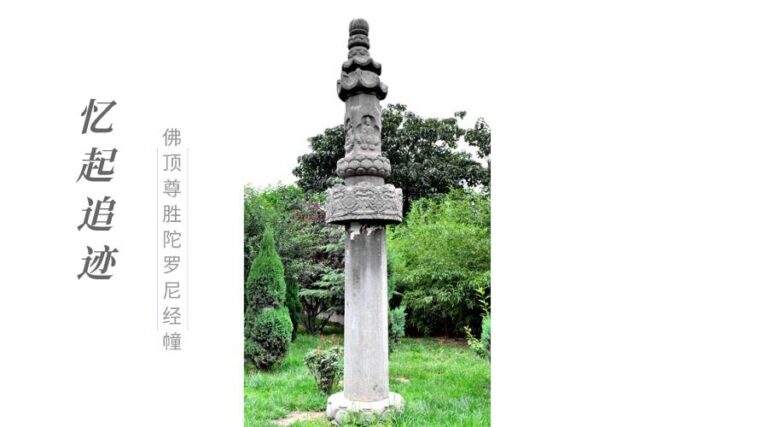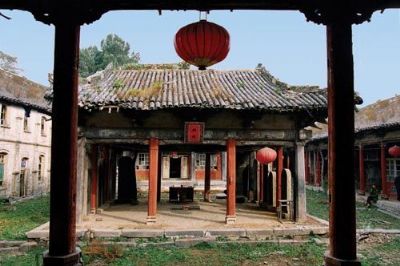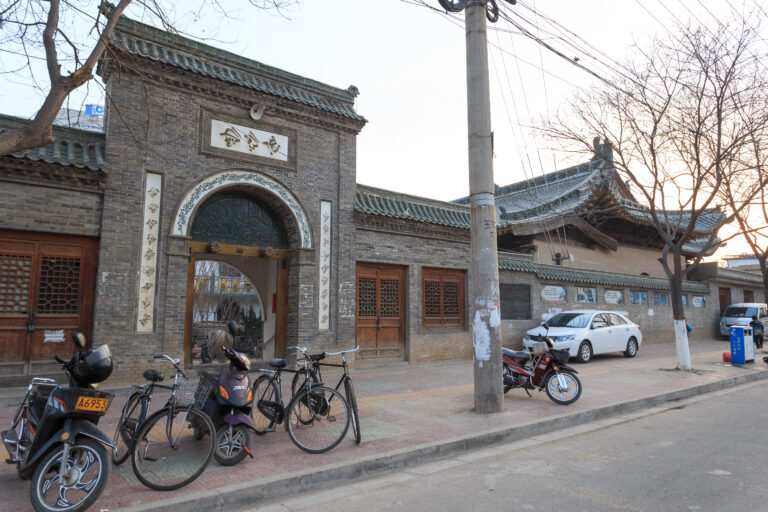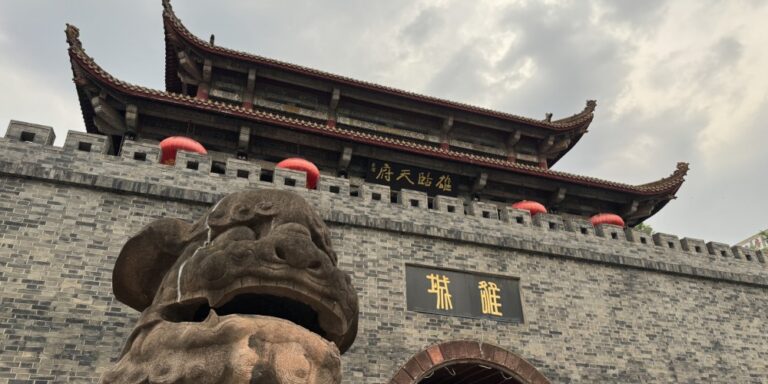Unveiling Baiyin Niumendong Yizhi: A Journey Through Gansu’s Rich Heritage
An Essential Guide to Visiting Baiyin Niumendong Yizhi
In This Guide
- An Essential Guide to Visiting Baiyin Niumendong Yizhi
- The Rich History of Baiyin Niumendong Yizhi
- Main Highlights: What to See at Baiyin Niumendong Yizhi
- Planning Your Visit: A Practical Guide
- Tickets, Hours, and Booking
- How to Get There
- Local Cuisine and Accommodation
- Frequently Asked Questions
- Final Thoughts on Your Trip
Nestled in the heart of Gansu Province, the Baiyin Niumendong Yizhi (牛门洞遗址) is a remarkable archaeological site that offers a fascinating glimpse into ancient Chinese civilization. Spanning approximately 16 square kilometers, this Neolithic relic is located near the quaint village of Niudong in Huining County, not far from the bustling city of Baiyin. The site is particularly renowned for its extensive burial grounds, where the remains of ancient cultures have been discovered amidst a backdrop of striking mountainous terrain.
The history of Niumendong dates back to the early 20th century, when local farmers first unearthed exquisite painted pottery during agricultural expansion in the 1920s. Subsequent excavations in the 1970s revealed a treasure trove of artifacts, including colorful ceramics, stone tools, and various burial goods, suggesting a rich cultural tapestry that spanned from the Majiayao culture to the Qijia culture. The site is particularly noted for its impressive cultural layers, reaching depths of up to two meters, revealing the intricate lives of the people who inhabited this region thousands of years ago.
Designated as a provincial cultural heritage site in 1982 and later recognized as a national key cultural relic, Baiyin Niumendong Yizhi stands as a testament to the historical and archaeological significance of the area. Visitors to this captivating site can expect to be immersed in the stories of ancient peoples, their burial practices, and the everyday objects they cherished. As you explore the remnants of this prehistoric settlement, you’ll be stepping back in time to uncover the mysteries of a civilization that once thrived in this picturesque landscape. Whether you are a history enthusiast, an archaeology buff, or simply a curious traveler, Niumendong promises an enriching experience that connects you to the ancient past of China.
The Rich History of Baiyin Niumendong Yizhi
The Baiyin Niumendong Yizhi, located in the northwest of Huining County, Gansu Province, represents a significant archaeological site that sheds light on the Neolithic period in China. Covering approximately 16 square kilometers, this site is nestled among various mountainous ridges, with many burial grounds situated on the slopes, indicating a rich cultural and historical past.
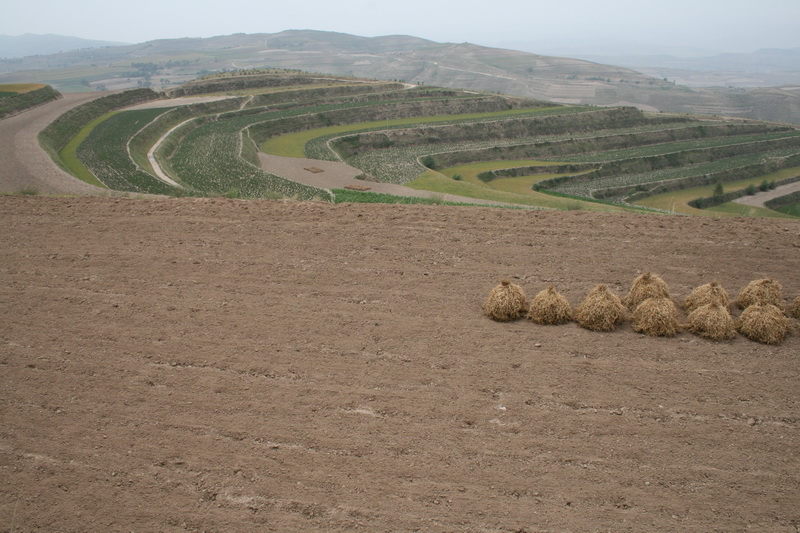
Baiyin Niumendong Yizhi.
The history of Niumendong dates back to the early 20th century when local farmers unearthed colorful pottery jars in 1920 during agricultural expansion efforts. This discovery marked the beginning of an important archaeological narrative. However, it wasn’t until the 1970s that systematic excavations revealed the true extent of the site. During farming infrastructure projects, workers discovered numerous burial pits spaced about a meter apart, containing an array of funerary objects including pots, jars, and various stone tools.
The artifacts unearthed at Niumendong are primarily associated with the Majiayao culture and its variants, spanning from the Majiayao culture to the Qijia culture. The site features a cultural layer that is 1 to 2 meters thick, rich with archaeological finds such as pottery, stone tools, and even jade implements. The burial practices observed here include both extended and flexed positions, often accompanied by ceramic and stone grave goods, reflecting the social customs and beliefs of the time.
In 1982, the Gansu Provincial Government designated Niumendong as a provincial-level cultural heritage site, further underlining its archaeological significance. By 1998, it was upgraded to a national-level protected site, and in 2006, it was recognized as one of the key cultural heritage sites of China. This progression in recognition highlights the site’s importance in understanding the Neolithic and Bronze Age cultures of the region.
Despite its historical richness, the site faced challenges due to the lack of extensive scientific excavation and study in its early years. Many artifacts and findings were identified only through incidental discovery, and the site has not yet undergone the comprehensive archaeological assessment it warrants. Nevertheless, the Niumendong site continues to be a focal point for researchers aimed at unraveling the complexities of ancient Chinese civilizations and their cultural evolution.
Through the layers of history embedded in its soil, the Baiyin Niumendong Yizhi stands as a testament to the rich tapestry of human life and culture that flourished in this part of China thousands of years ago.
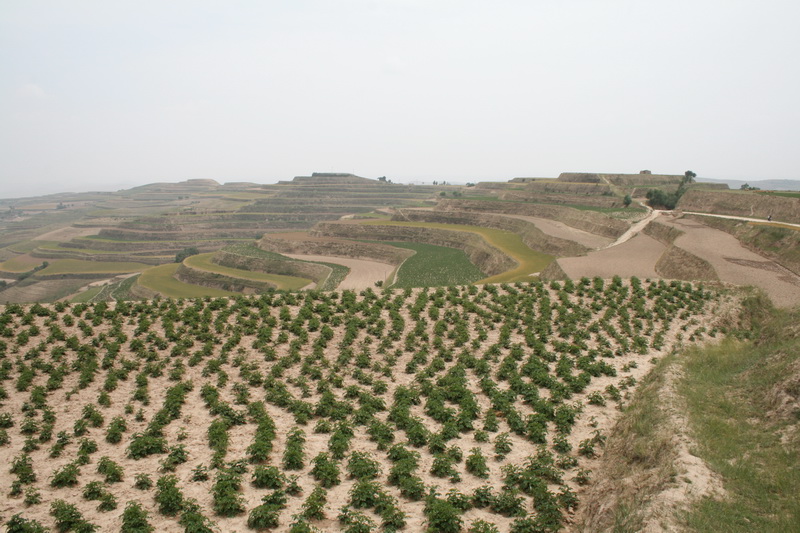
Baiyin Niumendong Yizhi.
Main Highlights: What to See at Baiyin Niumendong Yizhi
Nestled in the picturesque landscapes of Gansu Province, Baiyin Niumendong Yizhi (牛门洞遗址) is a remarkable archaeological site that offers a fascinating glimpse into the Neolithic era of China. Spanning approximately 16 square kilometers, this site is located in the Niudong Village of Huining County and is renowned for its extensive burial grounds and rich cultural artifacts.
Archaeological Significance
Discovered in 1920 during local agricultural expansion, Niumendong Yizhi has yielded a treasure trove of artifacts, including beautifully crafted painted pottery, stone tools, and various burial items. The cultural layers at the site range from 1 to 2 meters in thickness, showcasing a continuous occupation from the Majiayao culture through to the Qijia culture. Among the finds, the painted pottery is particularly noteworthy, characterized by intricate designs that reflect the artistic prowess of its creators.
Burial Practices
The burial practices observed at Niumendong provide insight into the spiritual beliefs and social structures of the time. The site primarily features extended burials, with some instances of flexed positions, accompanied by a variety of grave goods such as pottery and stone tools. These artifacts not only highlight the daily life of the inhabitants but also their funeral customs and beliefs regarding the afterlife.
Cultural Heritage
In recognition of its historical importance, Niumendong Yizhi was designated as a provincial-level cultural heritage site in 1982 and later classified as a national key cultural relic protection unit in 2006. This status underscores the site’s value in understanding prehistoric human activity in the region and its contributions to the broader narrative of Chinese history.
Scenic Location
Beyond its archaeological allure, the Niumendong site is set against a backdrop of stunning natural beauty, with rolling hills and scenic landscapes that enhance the visitor experience. The surrounding area is dotted with other significant archaeological sites, making it an attractive destination for history enthusiasts and nature lovers alike.
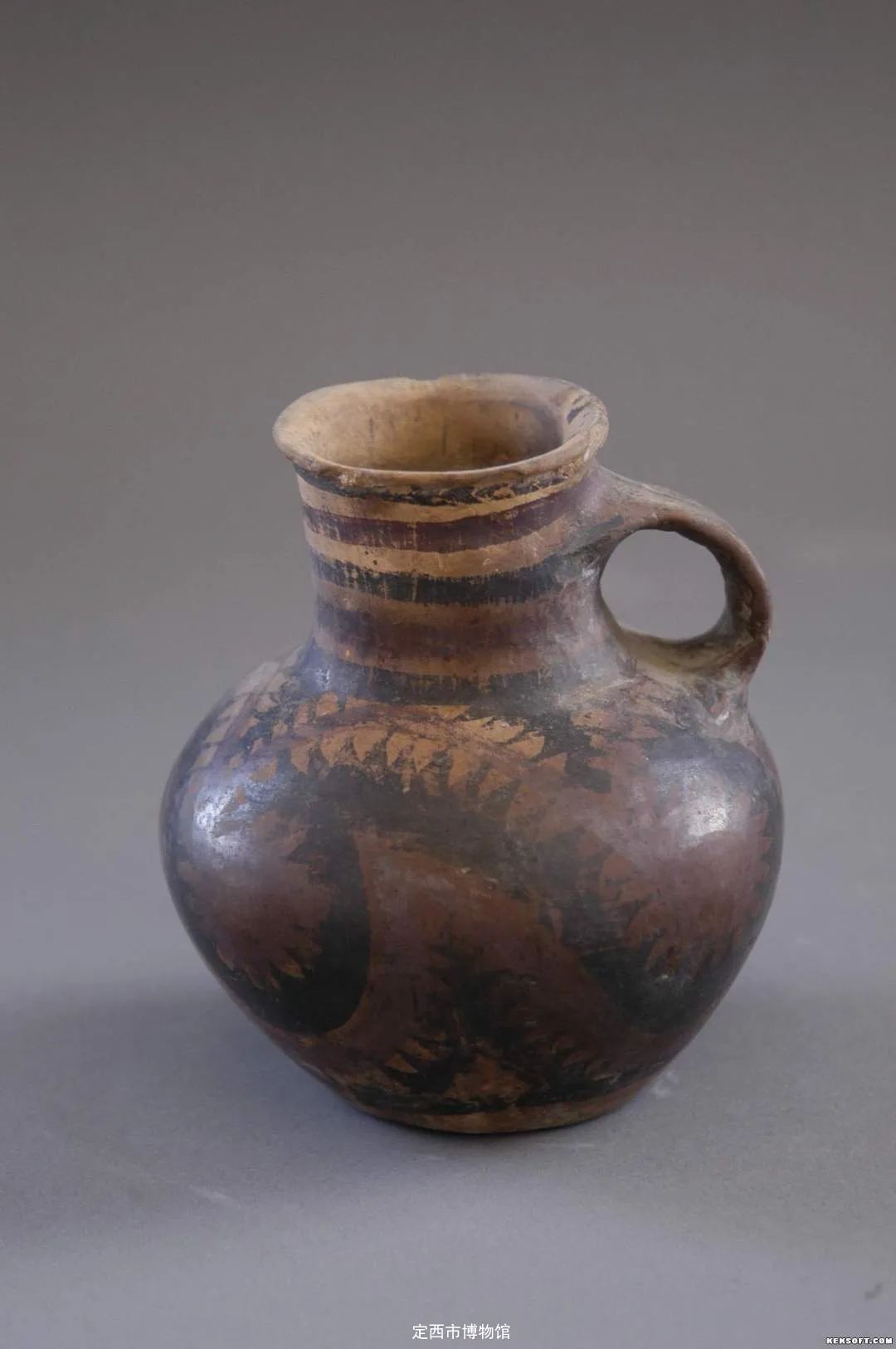
Baiyin Niumendong Yizhi.
Visiting Baiyin Niumendong Yizhi offers a unique opportunity to explore an integral piece of China’s rich heritage, where the echoes of ancient civilizations come alive amidst the serene beauty of Gansu’s countryside.
Planning Your Visit: A Practical Guide
Practical Guide to Baiyin Niumendong Yizhi (牛门洞遗址)
Nestled within the scenic landscapes of Huaning County in Gansu Province, Baiyin Niumendong Yizhi, or the Niumendong Neolithic Site, is a treasure trove of ancient history waiting to be explored. This archaeological site, significant for its rich cultural heritage, offers visitors an incredible glimpse into the lives of early human civilizations. Here’s everything you need to know to make the most of your visit.
Location and Accessibility
The Niumendong site is situated approximately 16 kilometers northwest of the town of Huaning, specifically in the Niumendong Village of the Touzhai Township. It spreads over an extensive area of about 40 hectares, surrounded by various hills and valleys, which adds to its picturesque setting.
To reach the site, visitors can take local transportation from Huaning County, which is accessible by bus or taxi. Due to its remote location, it is recommended to arrange your travel plans in advance, especially if you’re traveling from larger cities like Lanzhou.
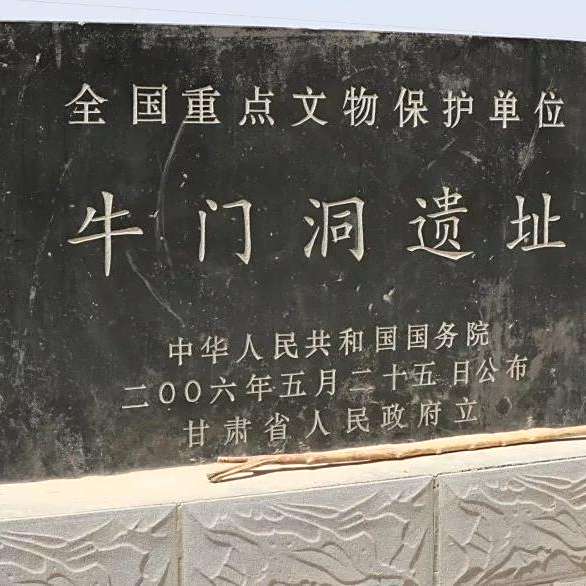
Baiyin Niumendong Yizhi.
Best Time to Visit
The ideal time to explore Baiyin Niumendong Yizhi is during the spring and autumn months (April to June and September to November). During these periods, the weather is mild, making it pleasant for outdoor exploration. Summers can be hot, while winters may bring chilly temperatures, which could limit your enjoyment.
What to Expect
-
Archaeological Significance: The Niumendong site is renowned for its Neolithic remains, including burial sites and artifacts that date back to various prehistoric cultures, notably the Majiayao and Qijia cultures. As you walk through the area, you’ll find exposed pottery shards and remnants of ancient tombs that provide insight into the burial practices and daily life of early humans.
-
Guided Tours: To fully appreciate the historical context of the site, consider joining a guided tour. Knowledgeable guides can offer valuable insights into the significance of the artifacts and the cultural practices of the time. Tours are often available in multiple languages, including English.
-
Photography Opportunities: The site is visually stunning, offering ample opportunities for photography enthusiasts. Capture the rugged beauty of the surrounding landscapes alongside the intriguing archaeological features.
-
Visitor Facilities: Basic amenities such as restrooms and information boards are available on-site. However, visitors should come prepared with water and snacks, as dining options may be limited in the immediate area.
Tips for a Successful Visit
-
Wear Comfortable Shoes: The terrain can be uneven, so sturdy walking shoes are a must for exploring the site.
-
Bring Sun Protection: Hats, sunglasses, and sunscreen are advisable, especially during the warmer months.
-
Respect the Site: As a protected cultural heritage site, it’s important to follow all guidelines set by the authorities, including not touching or removing any artifacts.
-
Plan Ahead: If you’re traveling from afar, consider staying in Huaning for a night to enjoy a more relaxed visit. Local accommodations range from guesthouses to hotels.
Nearby Attractions
After exploring the Niumendong site, consider visiting other nearby attractions in Huaning County, such as the scenic mountains and local villages where you can experience traditional Gansu culture firsthand.
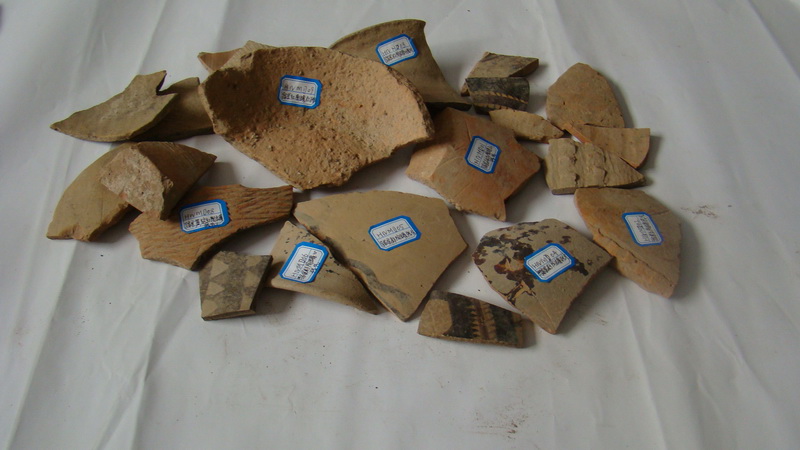
Baiyin Niumendong Yizhi.
Conclusion
A visit to Baiyin Niumendong Yizhi is not just an exploration of ancient artifacts; it’s a journey back in time that offers profound insights into human history. With its fascinating archaeological significance and beautiful landscapes, this site is a must-visit for anyone interested in the rich tapestry of Chinese heritage. Plan your trip today and step into a world shaped by the hands of our ancestors.
Tickets, Hours, and Booking
Visiting the Baiyin Niumendong Archaeological Site is a fascinating journey into ancient history, and planning your trip is essential for a smooth experience. Here’s what you need to know about ticketing for this remarkable site:
Ticket Information
- Admission Fees:
-
The entrance fee to the Niumendong Archaeological Site is approximately CNY 50 (about $7 USD) per person. This fee grants you access to the main excavation areas and informative displays about the site’s rich cultural heritage.
-
Opening Hours:
-
The site is open daily from 8:00 AM to 6:00 PM. It is advisable to arrive early to fully explore the vast 16 square kilometers and appreciate the intricate details of the Neolithic artifacts.
-
Guided Tours:
-
For those interested in a deeper understanding of the site, guided tours are available. These tours typically cost around CNY 100 (approximately $14 USD) and include a knowledgeable guide who will share insights into the significance of the various findings, including the burial practices and pottery styles from different eras.
-
Discounts:
-
Students, seniors, and children may be eligible for discounted rates. Always check for any available promotions or group discounts prior to your visit.
-
Payment Methods:
-
Tickets can be purchased at the entrance or in advance through various online travel platforms. Most major credit cards and mobile payment options like WeChat Pay and Alipay are accepted, making transactions convenient.
-
Accessibility:
-
The site is designed to accommodate visitors with mobility challenges, ensuring that everyone can enjoy this historical treasure.
-
Visitor Tips:
- It is recommended to wear comfortable shoes, as the site involves walking on uneven terrain. Also, consider bringing water and snacks, especially if you plan to explore the area extensively.
By planning ahead and understanding the ticketing process, you can enjoy a rewarding experience at the Niumendong Archaeological Site, immersing yourself in the ancient cultures that once thrived in this region.

Baiyin Niumendong Yizhi.
How to Get There
Getting to Baiyin Niumendong Yizhi (牛门洞遗址), a fascinating Neolithic archaeological site located in the picturesque Huining County of Gansu Province, requires some planning, but the journey is well worth it. Here’s how to navigate your way to this historical gem.
By Air
The nearest major airport to Baiyin Niumendong Yizhi is Gansu Dunhuang Airport (DNH), located approximately 130 kilometers away. This airport connects to several major cities in China, including Beijing, Shanghai, and Xi’an. From the airport, you can hire a taxi or take a shuttle bus to reach Baiyin, but be prepared for a journey that may take about two to three hours depending on traffic.
By Train
If you prefer traveling by train, Baiyin has a railway station that connects to various cities across Gansu and beyond. High-speed trains are available from Lanzhou, the capital of Gansu Province, which is approximately 100 kilometers away. The train journey from Lanzhou to Baiyin typically takes around one and a half hours. Once you arrive at Baiyin Railway Station, you can catch a local taxi or public bus to Niumendong Village, which is about 10 kilometers from the station.
By Bus
For those traveling on a budget, buses are a convenient option. Regular buses operate from major cities like Lanzhou and Baiyin to Huining County. The journey from Lanzhou to Huining takes approximately two hours. Once in Huining, you can take a local minibus or taxi to reach the site. Public transport within Huining is relatively accessible, and local drivers are usually familiar with Niumendong Yizhi.
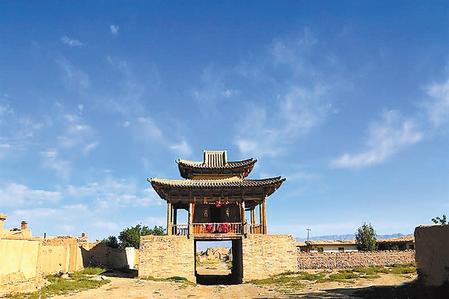
Baiyin Niumendong Yizhi.
By Car
Driving to Baiyin Niumendong Yizhi offers the flexibility to explore the surrounding scenic landscapes. If you choose to rent a car, the site is accessible via the G312 National Road. The journey from Lanzhou to the site takes about two hours and provides beautiful views of the Gansu countryside. Ensure your GPS is updated, and consider downloading offline maps, as remote areas may have limited connectivity.
Local Transportation
Once you arrive in Niumendong Village, getting around is straightforward. Taxis and local buses are available, and many visitors opt to walk to the site due to its proximity to the village center. Make sure to wear comfortable shoes, as the archaeological site may involve some light hiking and exploration.
Tips for Travelers
- Timing: It’s advisable to visit the site early in the morning or late afternoon to avoid crowds and enjoy the best light for photographs.
- Language: While many locals understand basic Mandarin, having a translation app can be helpful as English is not widely spoken.
- Guided Tours: Consider joining a guided tour for a deeper understanding of the site’s historical significance and archaeological findings.
With these transportation options at your disposal, visiting Baiyin Niumendong Yizhi will be an enriching experience that connects you with ancient Chinese civilizations. Enjoy your journey!
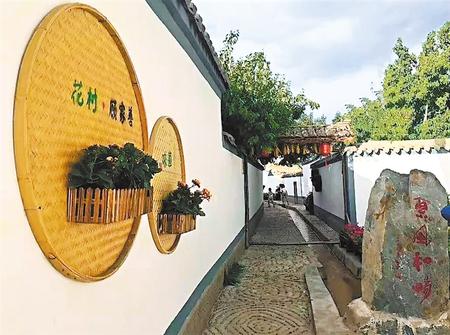
Baiyin Niumendong Yizhi.
Local Cuisine and Accommodation
When planning your visit to the Baiyin Niumendong Yizhi (牛门洞遗址), a site rich in archaeological significance, you’ll want to ensure your culinary and lodging experiences complement the history and beauty of the region.
Dining Options
While the immediate area around Niumendong Yizhi may not boast a large selection of international dining establishments, you can find authentic local cuisine that captures the essence of Gansu Province. Here are some recommendations for food:
- Local Restaurants: Look for family-run eateries in nearby towns like Huining and Tiezhaizi. These establishments often serve traditional dishes such as:
- Gansu Noodles (兰州拉面): A must-try, these hand-pulled noodles are served in a flavorful broth and topped with beef or lamb.
- Steamed Breads (馒头): Often served with various fillings, these fluffy breads are a staple in the region.
-
Spicy Lamb Skewers: Grilled over an open flame, these skewers are seasoned with a blend of spices that reflect the local palate.
-
Market Stalls: For a more casual dining experience, try the street food vendors in local markets. You can sample snacks like:
- Fried Dumplings (煎饺): Crispy on the outside and soft on the inside, these dumplings are filled with meat and vegetables.
- Sweet Rice Balls (汤圆): A delightful dessert made from glutinous rice flour and filled with sweet fillings.
Accommodation
For a comfortable stay near the archaeological site, consider the following options:
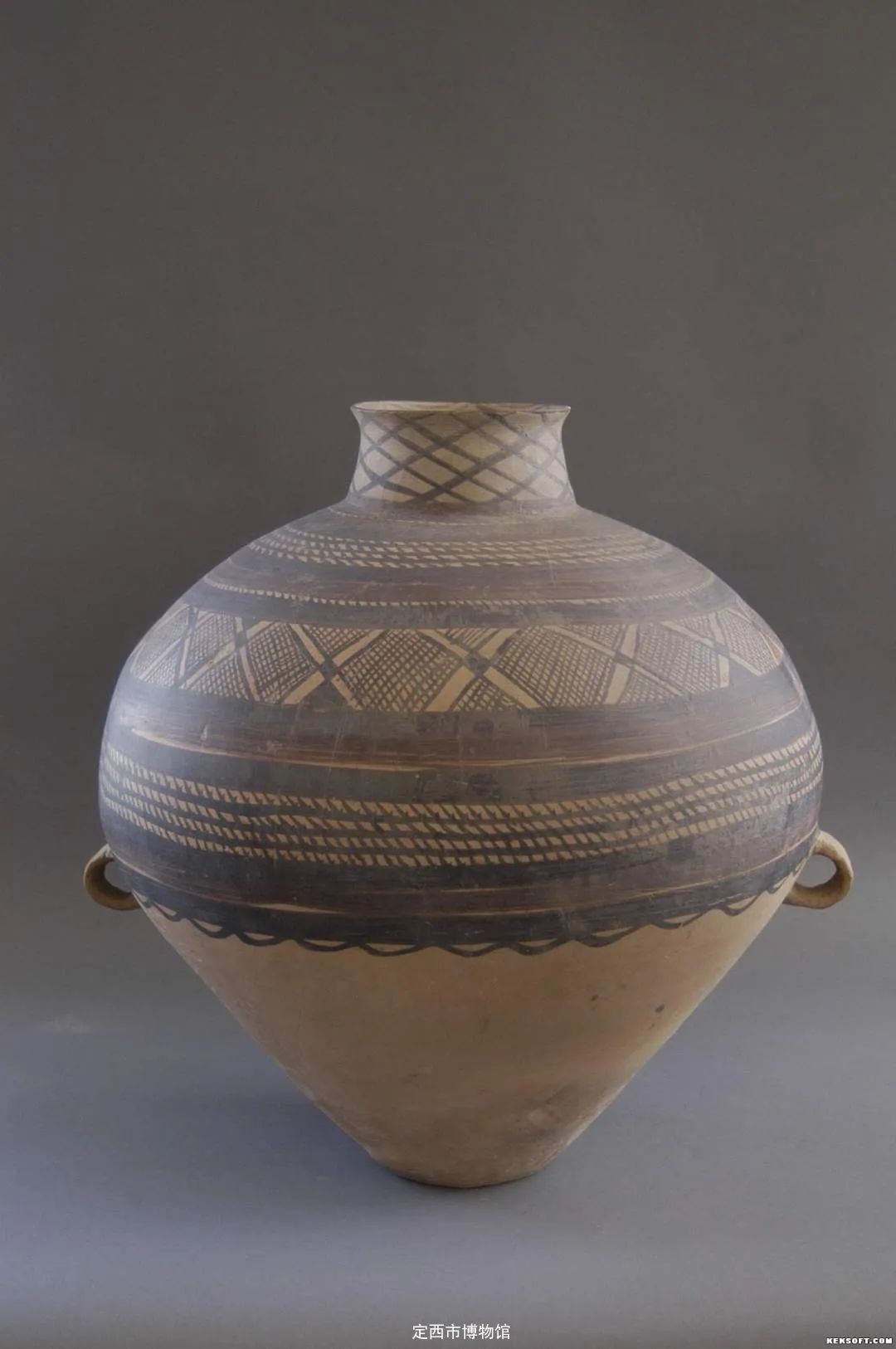
Baiyin Niumendong Yizhi.
-
Local Guesthouses: These often provide a cozy atmosphere and a chance to interact with the local community. Guesthouses in Huining and the surrounding villages offer simple but comfortable rooms, often at affordable rates. Many provide breakfast and can help arrange transport to the site.
-
Hotels in Baiyin City: If you prefer more amenities, Baiyin City, located about an hour’s drive from Niumendong Yizhi, offers several hotels ranging from budget to mid-range. Popular choices include:
- Baiyin International Hotel: Known for its friendly service and clean rooms, this hotel also features a restaurant serving local dishes.
-
GreenTree Inn Baiyin: A budget-friendly option with essential services and a comfortable stay.
-
Camping: For the adventurous traveler, consider camping near the site, especially if you enjoy nature. The surrounding mountains offer beautiful landscapes and a chance to experience the region’s natural beauty firsthand.
In summary, while your options may be limited, the local flavors and accommodations near Baiyin Niumendong Yizhi present a unique opportunity to immerse yourself in the culture and history of Gansu Province. Enjoy your culinary adventures and restful nights as you explore this fascinating archaeological site!
Frequently Asked Questions
-
What is Baiyin Niumendong Yizhi?
Baiyin Niumendong Yizhi, or the Niumendong New Stone Age Site, is an archaeological site located in the town of Touzhai, Huining County, Gansu Province, China. It covers approximately 16 square kilometers and is primarily known for its burial areas, which provide significant insights into Neolithic culture. -
How can I get to Niumendong?
The site is accessible by road from major cities in Gansu Province. Visitors can drive or take public transportation to Huining County and then proceed to the village of Niumendong. Local taxis or rideshare services may also be available. -
What are the main attractions at the site?
The site is renowned for its extensive burial grounds, where numerous artifacts have been discovered, including pottery, stone tools, and burial structures. Key features include the rich variety of pottery styles, indicative of the Majiayao culture, and the large number of grave goods accompanying the burials. -
Is there an entrance fee to visit the site?
As of the latest information, there is no specific entrance fee to visit Baiyin Niumendong Yizhi. However, it’s advisable to check for any updates or changes in regulations before your visit. -
Are there guided tours available?
Yes, guided tours are often available at the site, providing in-depth knowledge about the archaeological significance and historical context of the discoveries. It is recommended to inquire about tour availability in advance. -
What is the best time to visit Baiyin Niumendong Yizhi?
The best time to visit is during the spring (April to June) and autumn (September to November) months, when the weather is generally mild and pleasant. Summer can be quite hot, while winter may bring cold temperatures. -
What should I bring during my visit?
Visitors should wear comfortable walking shoes and bring water, a hat, and sunscreen, especially during warmer months. A camera is also recommended for capturing the scenic views and archaeological features. -
Are there any accommodations nearby?
There are various accommodation options available in Huining County, including hotels and guesthouses. It’s advisable to book your stay in advance, especially during peak tourist seasons, to ensure availability.
Final Thoughts on Your Trip
Visiting the Baiyin Niumendong Yizhi (牛门洞遗址) is not merely a journey through time; it is an opportunity to connect with the ancient cultures that once thrived in this region of China. As one of the most significant archaeological sites in Gansu Province, it offers a compelling glimpse into the Neolithic era, revealing the rich tapestry of human history through its remarkable artifacts and burial practices.
Exploring the site, you’ll encounter an array of beautifully crafted pottery and tools, each telling a story of the daily lives, beliefs, and customs of the people who inhabited this land thousands of years ago. The serene landscape, dotted with burial mounds and remnants of ancient settlements, invites contemplation and appreciation for the resilience and ingenuity of our ancestors.
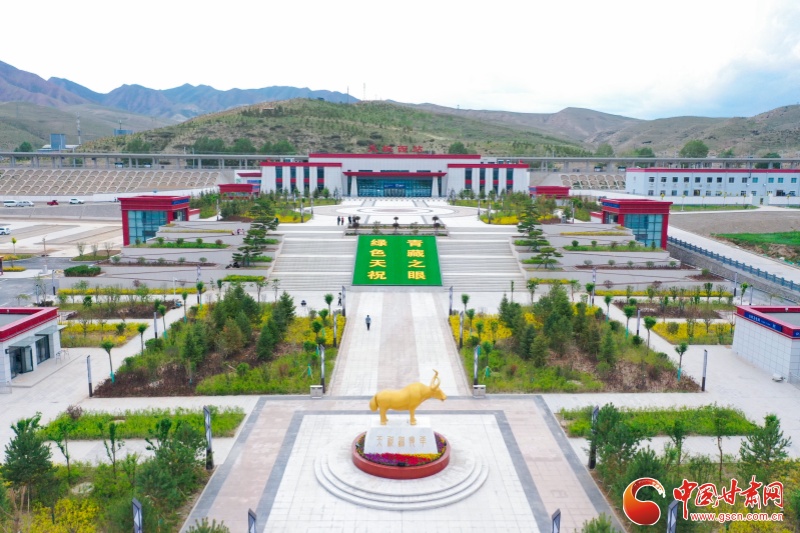
Baiyin Niumendong Yizhi.
Whether you are an archaeology enthusiast, a history buff, or simply seeking a unique travel experience, Niumendong will leave you with lasting memories and a deeper understanding of humanity’s shared heritage. As you walk among the remnants of the past, let the whispers of history inspire you to reflect on the journey of civilization and the importance of preserving our cultural legacy for future generations. Embrace the adventure and allow this magnificent site to enrich your travel experience in China.
